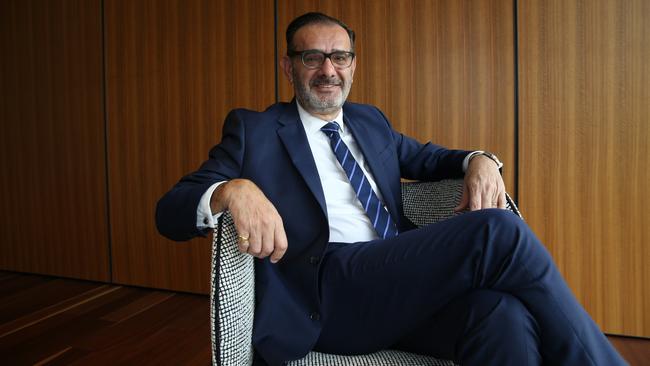NAB eyes scaled advice in private wealth arm
National Australia Bank is considering a scaled advice offering in its private wealth arm, as it chases a growth pipeline boosted by its move to link up its private and business bankers.

National Australia Bank is considering a scaled advice offering in its private wealth arm, as it chases a growth pipeline boosted by its move to link up its private and business bankers.
As the largest intergenerational wealth transfer in the nation’s history gets under way, with an estimated $3.5 trillion to pass from baby boomers to younger generations in the coming years, NAB’s head of private wealth, Michael Saadie, said scaled advice would enhance the firm’s client offering.
“We’re committed to maintaining and growing our wealth business – not just for growth’s sake, but as a way to expand the investment opportunities for our clients to support them in growing and managing their wealth for future generations,” Mr Saadie, who leads JBWere, the private bank and nabtrade, said in an exclusive interview.
“Offering scaled advice will help us provide further targeted financial guidance to wholesale clients, helping them invest and grow their wealth in line with their risk profile.“
A scaled advice offering at NAB Private Wealth is still 12 to 18 months away and comes as the firm, which banks some of the country’s wealthiest families and businesspeople, positions itself to step in as more families monetise their businesses, Mr Saadie told The Australian. “We’re the biggest business bank in the marketplace, and with that comes this huge opportunity to be able to look after these families as they monetise a lot of their businesses,” Mr Saadie said.
“For a big percentage of our business client base, the principal shareholder is now over the age of 65. So we’ve been allocating private bankers to work with our business bankers to identify all these families so we can start that conversation earlier. The trick is to get ahead of the curve before the monetisation event actually occurs, and work with the whole family,” he said.
This follows NAB ramping up its strategy to get its business, private bank and JBWere divisions working more closely together to provide a more holistic service to clients.
Mr Saadie, who took on the top job at NAB Private Wealth in early 2023 following the departure of Justin Greiner, said the business was expanding in the private credit space to meet client demand for the booming asset class.
“There’s been a dramatic shift over the course of the last 12 months, where a lot of our clients are now looking for more fixed interest income and looking for those sorts of (defensive) investments, given the uncertainty of the global outlook we’re currently facing into,” Mr Saadie said.
“We’ve seen a huge uptick in terms of fixed interest and, with the right provider, private credit. Investors are still chasing yield through those vehicles, and that’s one of the reasons why we invested quite heavily in terms of our global bond capability.
“We built out a new platform and, and we’ve seen volumes on that platform grow three times where we started.”
To capture more of the hot private credit market, NAB private wealth clients could access a European private credit fund, the West Street European Private Credit Fund, he said.
“We expect to see continued growth in private credit across all regions on the back of the retracement of traditional banking, with senior direct lending being the largest sector within the private credit asset class,” Mr Saadie said.
“Looking forward, European and APAC private credit markets will continue to narrow the gap to the more established US private credit market.”
Mr Saadie was speaking ahead of NAB’s annual result which saw the lender, the biggest business bank in the country, record an 8.1 per cent slide in cash profit, to $7.1bn, for the 12 months through to September 30.
Earnings in its personal bank cratered 20 per cent to $1.17bn in the year on lower revenue and higher expenses, while its business and private banking division increased deposits 7 per cent, as business lending jumped 8 per cent.





To join the conversation, please log in. Don't have an account? Register
Join the conversation, you are commenting as Logout